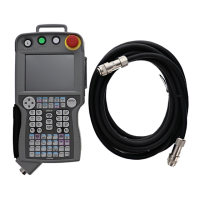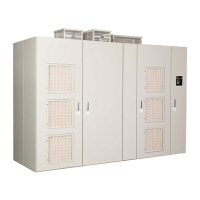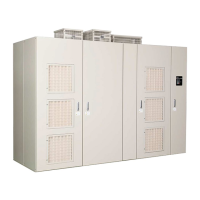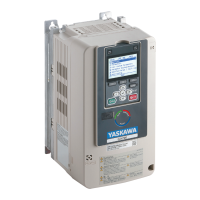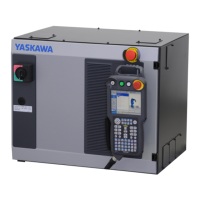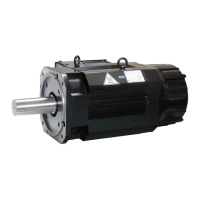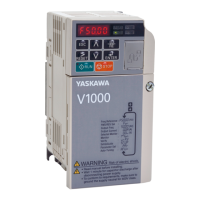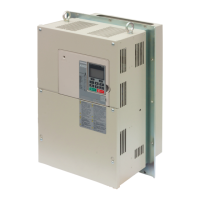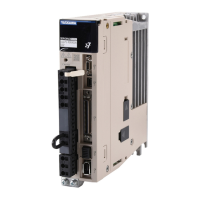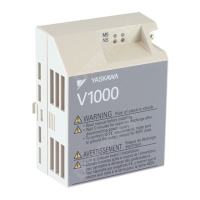2 INFORM Explanation
FS100 2.2 Control Instruction : CALL
2-32
4. IF
The following tag can be added or omitted.
5. Argument
The following tag can be added or omitted.
(1) CALL JOB:TEST1
The job named TEST1 is called.
(2) SET B000 1
CALL B000 IF IN#(14)=ON
If input signal No.14 is on, it calls the job “1”.
5. 1 Outline (CALL Instruction with Argument)
The CALL instruction was the function with which the calling job would
only call and execute the specified called job. This time, the function to
pass information to the called job as arguments was newly added.
Up to 8 arguments can be passed.
The RET instruction only meant the return of the execution from the called
job. This time, it became possible to return one return value to the calling
job. This enables the transfer of information without using the global
variable to pass information. Thus, it makes the management of
information easier, the number of lines of the calling job fewer, and the
process simpler.
(1) CALL Instruction with Argument
For example, when creating the job which only waits for incoming in order
to wait for the incoming of I/Os, the input number’s incoming to be waited
for had to be set to the global variable, and the information had to be
passed from the calling job to the called job. For example, the case when
the input of specified three points are IN#(1), IN#(5), and IN#(7) is as
follows:
No Tag Explanation Note
10 IF Specifies the IF instruction. Refer to chapter 2.6
“Instruction Which
Adheres to an
Instruction” at
page 2-208.
No Tag Explanation Note
11 to
18
Argument
(all types of variables
and constants)
Eight arguments (from 11 to 18) can be passed to the
job to be called. All types of variables and constants
can be used as arguments.
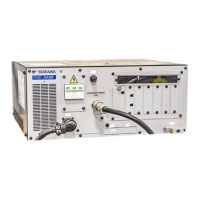
